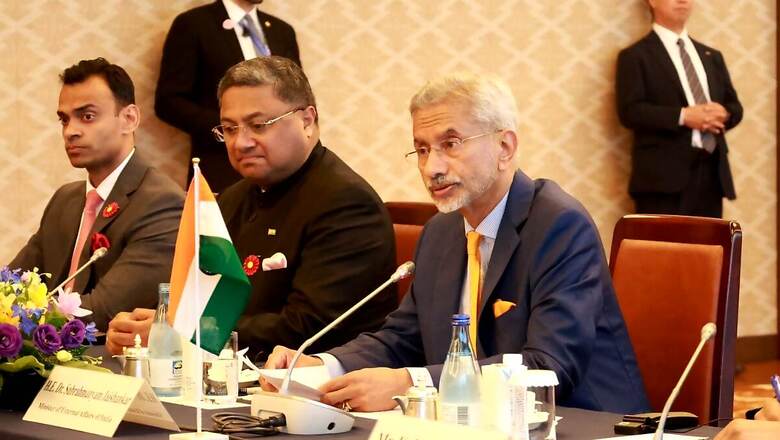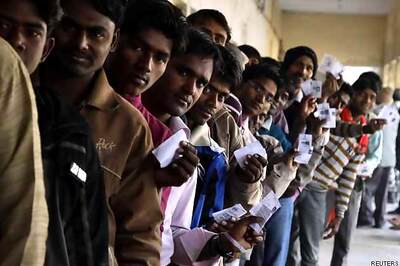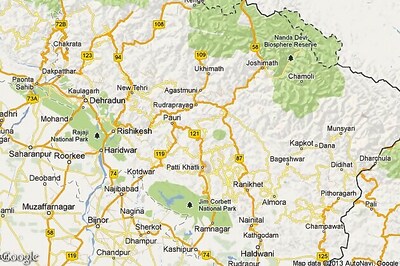
views
Tokyo: The Quad is working for a free and open Indo-Pacific and rules-based order that by itself is a powerful stabilising factor in an uncertain and volatile world, External Affairs Minister S Jaishankar said on Monday.
In his remarks at the Quad Foreign Ministers press conference, Jaishankar said the Quad grouping is not a talk shop but a platform that generates practical outcomes. Australia, India, Japan, and the United States are members of the Quad grouping.
Addressing the press alongside FM @Kamikawa_Yoko, @SecBlinken and FM @SenatorWong after the Quad Foreign Ministers Meeting in Tokyo today.pic.twitter.com/W7s593IbDC
— Dr. S. Jaishankar (@DrSJaishankar) July 29, 2024
“For example, our Humanitarian Assistance and Disaster Relief conversations are reflected in understandings and SOPs between our Navies. The Indo-Pacific Maritime Domain Awareness initiative that came out of Quad today links information fusion centres. The Open-RAN network, which we have spoken about so much, is being deployed in Palau. A space-based climate warning system will be launched soon in Mauritius. Off-grid solar projects are actually happening in the Indo-Pacific islands, he said.
”The overall messaging is that our four countries – all democratic polities, pluralistic societies and market economies – are working together for a free and open Indo-Pacific, for a rules-based order and for global good. That by itself is a powerful stabilising factor in an uncertain and volatile world,” he said.
In November 2017, India, Japan, the US, and Australia gave shape to the long-pending proposal of setting up the Quad to develop a new strategy to keep the critical sea routes in the Indo-Pacific free of any influence. The South China Sea lies at the junction between the Pacific and Indian Ocean.
China claims most of the South China Sea as its own, while The Philippines, Vietnam, Malaysia, Brunei and Taiwan have counterclaims over the maritime area. China has a maritime dispute with Japan over the East China Sea.




















Comments
0 comment